![]()
Sun, Nov 07, 2010 | The Meir Amit Intelligence and Terrorism Information Center
Iran Wants Recognition From The West As A Nuclear State
Following Iran’s agreement to resume nuclear talks with the West, Iranian media says talks should reflect West’s recognition of Iran’s power.
In a letter sent by Supreme National Security Council secretary Sa’id Jalili to EU Foreign Affairs High Representative Catherine Ashton last week, Iran said it was willing to resume nuclear talks with the G5+1 (U.S., Britain, France, Russia, China, and Germany) starting November 10. The talks between Iran and the West over the Iranian nuclear program were terminated in October 2009.
Iran’s Foreign Ministry spokesman Ramin Mehmanparast announced this week that Iran had repeatedly expressed willingness to resume negotiations with the West and had already clarified its position on the principles on which such negotiations should be based. He noted that both parties had yet to agree on the time and location of the talks, as well as the issues to be discussed. Mehmanparast said that better results could be expected if more countries joined the negotiations (ISNA, October 31).
The president also addressed the resumption of the talks in an interview given this week to Iranian TV. Ahmadinejad said that the sanctions imposed on Iran by the West were doomed to failure, and that the West realized that it had no alternative but to engage in negotiations. He stressed once again that Iran was willing to hold talks based on the principles of justice and honor, and that it would not concede to all Western demands. If the West shows hostility towards Iran and is unwilling to act in accordance with international law, it would affect Iran’s conduct in its negotiations with the G5+1 (various news agencies, October 30). In an interview to Fars News Agency, the president’s senior advisor Ali-Akbar Javanfekr said that Iran had no intention of negotiating on its nuclear program in the coming November talks. He said that the G5+1 first had to answer Iran’s questions about the aims of the talks and the nuclear weapons held by Israel (Fars, October 31).
Following Iran’s agreement to resume negotiations with the West, government-affiliated media claimed this week that the resumption of the talks reflected the West’s recognition of Iran’s power, a recognition that the talks must reflect. The conservative daily Siyasat-e Ruz argued that the West must engage in trust-building measures towards Iran to ensure the success of the negotiations. The G5+1 countries must display their good intentions towards Iran, to accept responsibility for the failure of previous talks held between the two parties, and to eliminate the atmosphere of distrust between Iran and the West. The West must also admit that the sanctions imposed on Iran were illegal and acknowledge Iran’s right for nuclear technology as a foundation for conducting the negotiations (Siyasat-e Ruz, October 30).
Several commentators interviewed by the daily expressed their views that the talks should be held on the basis of the West’s willingness to recognize Iran’s rights and unique position. Dr. Seyyed Reza Sadr al-Hosseini noted that Iran’s internal strength, the warm welcome given to President Ahmadinejad during his visit to Lebanon, and his UN Security Council address gave Iran a special position that should be reflected in any negotiations with the West. After the loading of fuel into the Bushehr nuclear reactor, Iran became, in fact, a nuclear state, and the West’s recognition of that reality paved the way for the resumption of talks with it. It was his assessment that, other than the nuclear program, Iran would raise further issues during the negotiations, including Israel’s nuclear capabilities and the right of other countries to possess nuclear technology. Dr. Mohammad Sadeq Koushaki claimed that the West must acknowledge that the nuclear program is a domestic Iranian issue in which the West therefore has no right to intervene. The monitoring of Iran’s nuclear activity must be carried out solely by the IAEA, in accordance with professional and legal considerations (Siyasat-e Ruz, October 31).
The commentator Mehdi Mohammadi also argued that the West should meet Iran halfway, as the latter expressed willingness to resume talks on its nuclear program. In an interview to Fars, a conservative news agency, the international affairs expert said that the West, having acknowledged the failure of the sanctions against Iran, came to the realization that it had no other recourse but to hold talks with it. He noted that Iran had expressed willingness to resume the negotiations based on the letter sent by Jalili to Ashton on July 6, and that Ashton had expressed no reservations over the letter. This means that the talks resume on the basis of Iran’s demand to clarify several issues ahead of the actual resumption: namely, Western countries must explain their intentions towards Iran and the purpose of the negotiations, as well as their stance on the nuclear weapons held by Israel (Fars, October 30).
Meanwhile, the daily Keyhan claimed this week that the nuclear program could not be the only issue to be discussed in the Iran-G5+1 talks, saying that only the IAEA should be dealing with the nuclear program. An editorial published by the daily says that, in the past, the West would settle for no less than the complete halt of uranium enrichment and the shutdown of Iran’s nuclear facilities. Nowadays, thanks to Iran’s strategy of resistance and firm stand, Western countries consider the very resumption of negotiations to be a significant achievement and are forced to accept the reality of Iran as a nuclear state. Furthermore, Iran no longer needs the deal offered by the West last year to supply enriched nuclear fuel for the nuclear reactor in Tehran in exchange for sending most of the enriched uranium from Iran to a third country, since it will soon be able to produce the necessary materials for the reactor’s operation on its own (Keyhan, November 1).
The daily Jomhuri-ye Eslami also addressed the resumption of talks between Iran and the West, claiming that the history of the negotiations with the G5+1 countries was a reflection of Western strategy, based on exerting pressure on Iran. If the West persists with that policy, the daily claimed, it will once again be responsible for the failure of the talks (Jomhuri-ye Eslami, November 1).



 RSS
RSS

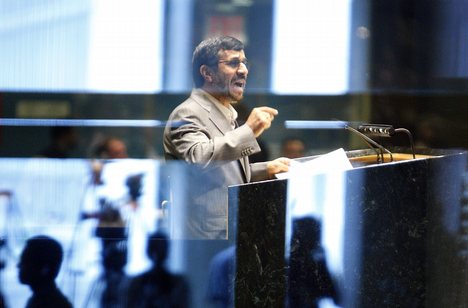

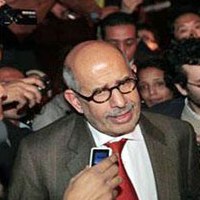
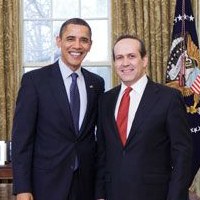
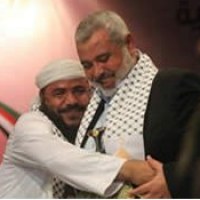
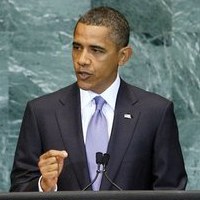




#Iran Wants Recognition From The #West As A #Nuclear State | http://j.mp/d4PqqI
RT @CrethiPlethi: #Iran Wants Recognition From The #West As A #Nuclear State | http://j.mp/d4PqqI